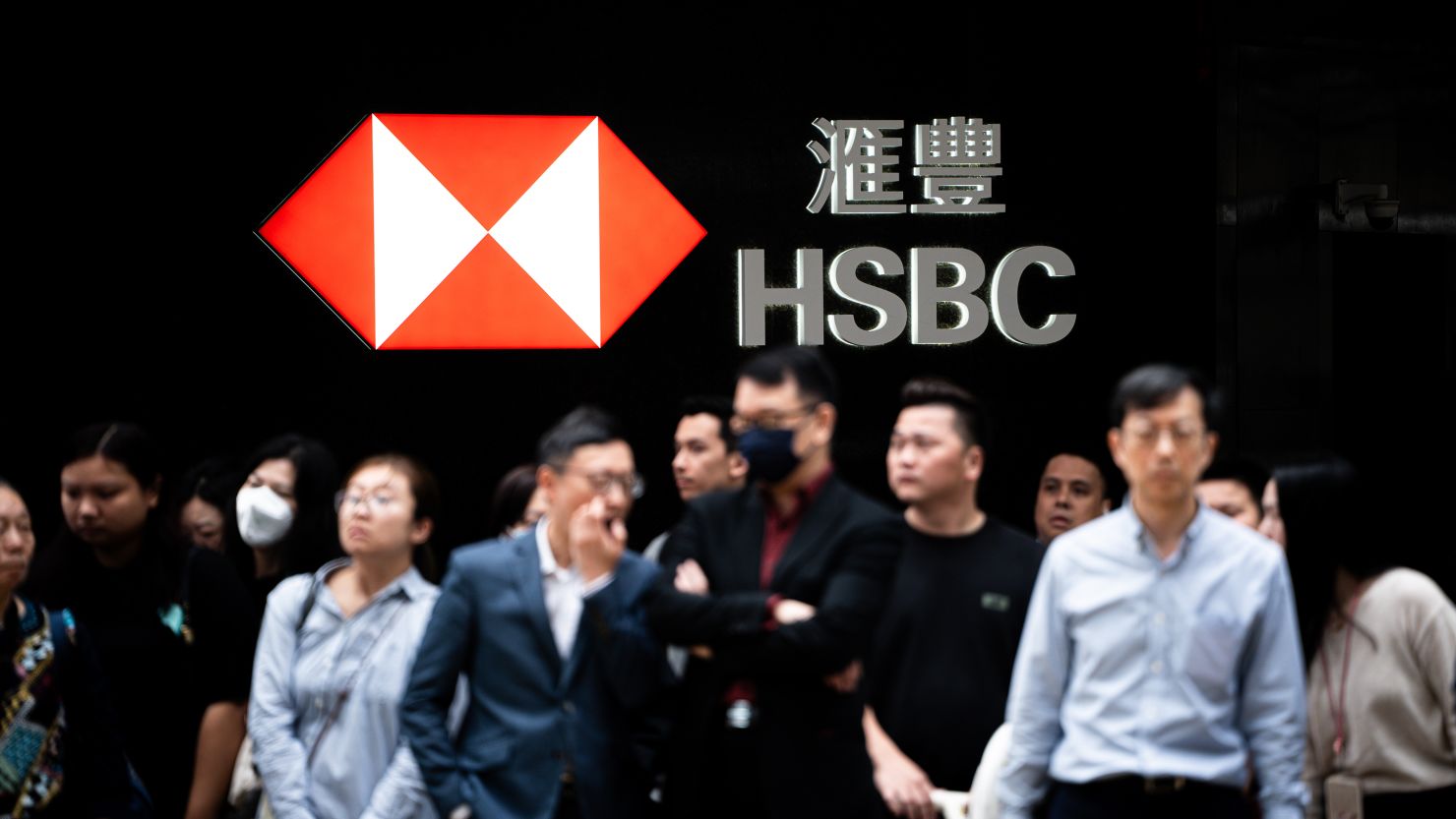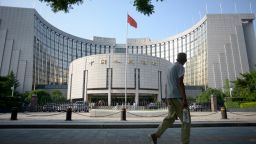HSBC posted a big drop in quarterly profit Wednesday after taking a $3 billion hit on its stake in China’s Bank of Communications (BoCom) and another charge related to exposure to the country’s troubled real estate industry.
The Asia-focused lender reported an 80% drop in pretax profit in the last three months of 2023, compared to the same period in 2022, it said in a statement.
HSBC attributed the decline to a pair of charges that it took. Of the total, $3 billion was related to BoCom, one of China’s biggest banks, while $2 billion was from selling its retail banking business in France.
HSBC said the $3 billion impairment was calculated after a December evaluation, which included an estimate of future cash flows at BoCom.
Separately, HSBC made $3.4 billion in provisions to cover expected credit losses and other charges related to its exposure to the commercial real estate sector in mainland China.
“Backing out a lot of the mess, it looks like performance was a little worse than expected with higher operating costs more than offsetting slightly better impairments,” Matt Britzman, equity analyst at Hargreaves Lansdown, wrote in a research note.
“Mainland China remains a question mark… while loan loss charges were better than expected, the Chinese commercial real estate sector continues to be weak,” he said.
But the UK-headquartered bank, Europe’s biggest by market value, maintained a positive view on China.
“China’s recovery after reopening was bumpier than expected, but its economy grew in line with its annual target of around 5% in 2023. We expect this to be maintained in 2024, with recently announced policy measures to support the property sector and local government debt gradually flowing through to the wider economy,” Chairman Mark Tucker said in the statement.
China’s economy has been hobbled by a real estate crisis since 2021, when a government crackdown on borrowing by developers triggered a funding squeeze in the sector.
The property market has since entered a prolonged slump, marked by an ongoing decline in real estate investment and sales of property. Dozens of major developers have defaulted on their debt, with Evergrande, once the country’s second largest homebuilder, ordered to liquidate last month.
The charges reported by HSBC cast a shadow over its record annual profit, which came in at $30.3 billion, up 78% from 2022. A group of analysts polled by the bank itself had anticipated yearly pretax profit of $34.1 billion.
HSBC’s Hong Kong-listed shares declined following the results announcement, closing nearly 4% lower. Its London-listed shares fell 7% when the market opened.
HSBC said it has a 19% stake in BoCom, which it purchased in 2004.
“BoCom remains a strong partner in China, and we remain focused on maximising the mutual value of our partnership. Our positive views on the medium and long-term structural growth opportunities in mainland China are unchanged,” it said.
HSBC isn’t the only European lender to be affected by China’s property woes. In October, rival Standard Chartered reported a $186 million credit impairment charge related to commercial real estate in the country.
— Hanna Ziady contributed to this article.








